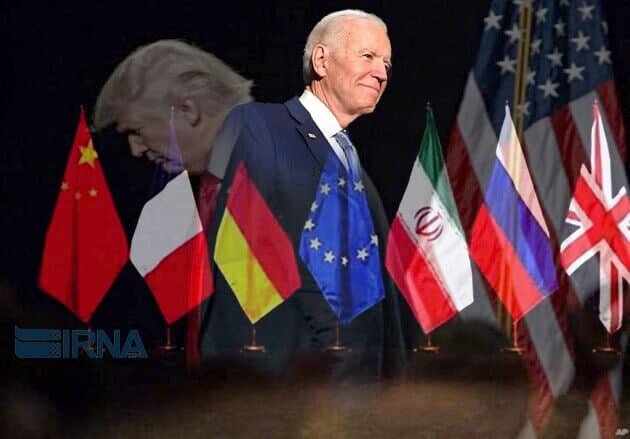All-in-one dialogue: A smarter way to be tough on Iran

Nearly all prominent American think tanks with a determinant role in U.S. security and foreign policymaking have focused on President Joe Biden’s pledge to revitalize the 2015 Iran nuclear deal.
American nuclear policy and non-proliferation experts mention that this stated attitude towards the JCPOA by Washington might have led to some sort of convergence between the U.S. and Iran.
They believe that at the time being, notwithstanding the long-time acrimonious relationship between Tehran and Washington, both capitals concur on the necessity to restore core elements of the 2015 nuclear deal.
In this context, Arms Control Association with Daryl G. Kimball as Executive Director and Kelsey Davenport, Director for Nonproliferation Policy, have elaborated on the issue.
The think tank publishes a monthly flagship magazine titled “Arms Control Today” which contains authoritative information and analysis on arms control as well as negotiations, agreements, and related national security news.
In volume 5 of the journal released in April 2012, Naysan Rafati, an expert on the Iran nuclear deal and regional policies, has written an article titled “The Arduous Path to Restoring the Iran Nuclear Deal” in which he underlines that while both Tehran and Washington have stated their commitment to restoring the JCPOA, the current dynamics indicate that actions speak louder than words.
With deep bilateral mistrust as the primary impediment towards a revival of the JCPOA, Rafati says, “The shared strategic imperative of full mutual compliance remains out of reach so long as a tactical deadlock continues on how to achieve it.”
In a piece of opinion on September 13, 2020, on CNN website, Biden as a vocal critique of Donald Trump’s maximum pressure strategy against Iran, described Trump's Iran policy as “a dangerous failure”. The headline of his article was “There's a smarter way to be tough on Iran.”
Both Tehran and Washington are strongly reluctant to take the first initial move to step out of the current political stalemate. Against the backdrop, Rafati proffers some recommendations as potential solutions to break the diplomatic impasse.
He believes that to conduct a “surgery” on the JCPOA, “triage” must be considered as the substantive and foundational step and writes: “One potential solution would be to identify initial steps that each can take in parallel, thereby sidestepping the question of unilateral concessions in favor of mutual, reciprocal action.”
Rafati defends keeping existing U.S. sanctions and accuses Iran of sponsoring terrorism and breaching the JCPOA. He writes: “For example, the United States could work with South Korea on the partial release of frozen Iranian assets, which might, in turn, be earmarked for purchases of COVID vaccines and other medical goods.”
The analyst adds: “In return, Tehran could end one of its more worrisome nuclear breaches, such as the recently initiated production of uranium metal or uranium enrichment to 20 percent U-235.”
The think tank argues shaping such an initial understanding may facilitate the way for both Tehran and Washington to “unwind their nuclear breaches and sanctions, respectively.”
The Trump administration imposed more than 1,500 designations against Iranian individuals and entities.
In turn, Tehran has declared that U.S. compliance with the JCPOA means the entire rollback of all the sanctions.
Given that Secretary of State Antony Blinken has said that an Iranian full return to the JCPOA would trigger “some sanctions relief”, Rafati claims that Iran’s precondition is “maximalist demand unlikely to be realized.”
For the White House, as the analyst admits, the JCPOA is “necessary but insufficient diplomatic initiative.” As Blinken and other U.S. officials have reiterated, the U.S. seeks a “longer and stronger” nuclear deal, to be constructed on top of a fully reinstated JCPOA.
The expert argues that the 2015 JCPOA talks indicate that considering wider regional issues such as Saudi Arabia and Israel’s concerns is essential for brokering an effective, sustainable deal. In this context, the expert recommends: “An effort at the de-escalation in the (Persian) Gulf may be the most feasible starting point.”
A few months before the U.S. presidential elections in November 2020, the Democratic nominee proposed his playbook for dealing with Iran’s nuclear program based on three main pillars.
To draw the outlines of his agenda, Biden wrote: “First, I will make an unshakeable commitment to prevent Iran from acquiring a nuclear weapon.”
“Second, I will offer Tehran a credible path back to diplomacy. If Iran returns to strict compliance with the nuclear deal, the United States would rejoin the agreement as a starting point for follow-on negotiations.”
“Third, we will continue to push back against Iran's destabilizing activities, which threaten our friends and partners in the region.”
Reiterating U.S.’s commitment to providing Israel with security assistance, Biden mentions the record-setting U.S.-Israel agreement signed when he was vice president and wrote: “America will also work closely with Israel to ensure it can defend itself against Iran and its proxies.”
On U.S. sanctions on Iran, Biden openly stated: “We will continue to use targeted sanctions against Iran's human rights abuses, its support for (what he called) terrorism and ballistic missile program.”
Reviewing Biden’s opinion on CNN before arriving at the White House indicates that his roadmap for pressuring Tehran was already set out. Biden’s White House has taken some symbolic steps to show goodwill such as easing the Trump-era restrictions on the movement of New York-based Iranian diplomats and rescinding a Trump administration assertion that all UN sanctions had been reimposed on Iran in September. However, all sanctions are still in place and the configuration of Iran’s team at the Oval Office may tell another story.
With Richard Nephew, the architect of Washington’s economic siege as the right-hand man of Robert Malley, opening the window of rapprochement seems a bridge too far.
In other words, as Biden put in September 2020, a tougher agenda to confront the Islamic Republic smartly is on the table at the current democratic Oval Office.
Comments